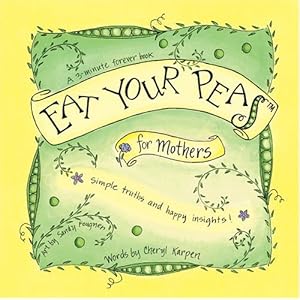Any problem, big or small...
always seems to start with bad communication.
Someone isn't listening.
~Emma Thompson
 |
| Sohbet (c) MJohnson 2011. |
“You’re so critical!” he said to her, driving home from dinner that night. It was a moment—just words—that could have derailed their evening together had she assumed the worst. But she wanted to understand him; she always wanted to understand, so she asked, “What do you mean?” Then she listened.
Turns out, he meant that she was critical to him, to their relationship, to their peaceful life together. A very different “critical” than she had at first imagined.
An example so simple but so profound, with the power to shift our understanding of the way we communicate and perceive each other. Yet how often do we nearly kill ourselves jumping to conclusions?
I’ve seen it in friendships and partnerships; in the boardroom, the bedroom and in the courtroom. I’ve done it—selectively listened and assumed the worst—and I’ve watched with horrified amazement as others have done it too. I’ve witnessed folks come together for the right reasons and with the best intentions only to walk away from their common cause because what they heard and focused on was how far apart they were instead of how very closely aligned their interests had become.
There have been missed opportunities, hurt feelings, lawsuits, and, yes, even wars over the way we communicate and respond to crisis. We’ve ruined perfectly good times with loved ones because we’re so busy making assumptions about what they did or said or meant rather than assuming the best of their intentions and bridging the gap between our hearts. Misunderstandings have escalated into full-blown battles because we’re caught and entangled in our comforting but destructive habit of choosing to be offended.
But we’ve also created thriving businesses, communities, relationships and families through our conscious communications. We’ve expressed love, hurt, excitement and joy, and we’ve shared our plans and desires as others have heard us and responded in kind. What a relief to be heard and understood!
Sufi mystics describe this connection as “sohbet.” Though a bit difficult to translate in English, this word—pronounced “so-bet”—speaks of a different kind of conversation. It involves deep listening between the heart and spirit. It refers to a way of communication that is more than just words; it is, in essence, the transmission of one’s heart to another in conversation. But it’s even more than that, for true sohbet encompasses the many silent conversations taking place each moment between every living thing in the cosmos, and it is believed that those with ears attuned to the inner heart can hear these subtle exchanges.
True sohbets can be so powerful that those involved can bring about incredibly deep understanding in a very short period of time, much quicker than prayer and meditation alone. So significant is this to our highest way of being in the world that most every spiritual tradition describes a version of this “great listening”—Christians, Hindus, Muslims, Buddhists, and many Native Traditions—where we are encouraged to listen deeply and respond with the whole heart. And though many speak of listening to Spirit as the highest directive, this wisdom translates well into our relationships. Imagine what we could accomplish if we brought this practice to our business and personal affairs!
But to reach the level of sohbet, we have to put away our cell phones and laptops, video games and DVDs, turn off the television and tune into each other—eye to eye—and really connect with the truth of the heart and all that it reveals. That’s where the magic happens.
So as we move into this magical holiday season, giving thanks for all that is, why not give the gift of sohbet. Be that person who seeks to understand before demanding to be understood, and there in that space discover the truth of just how critical you are.















.jpg)



